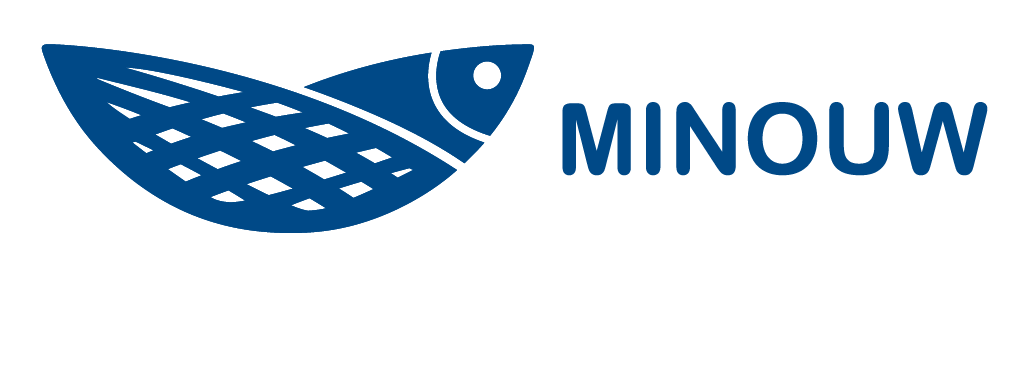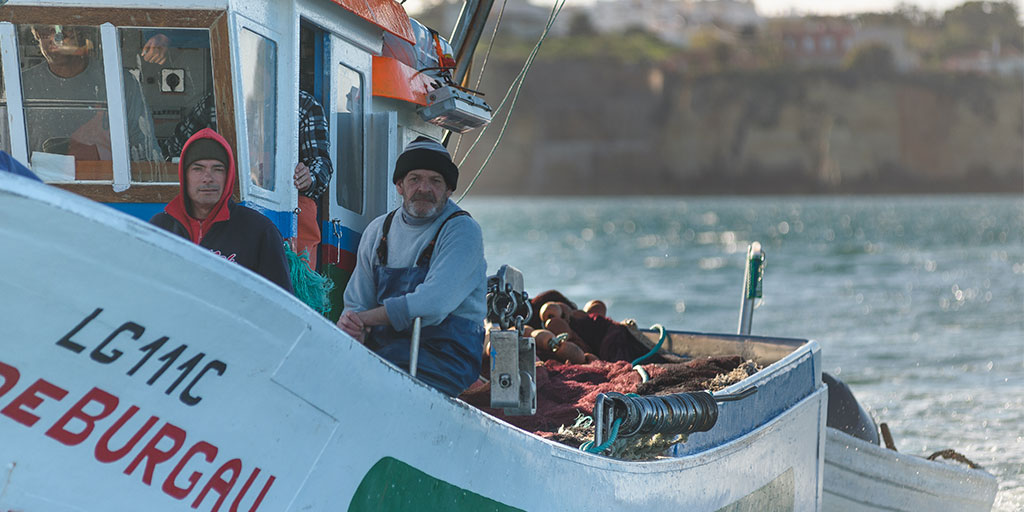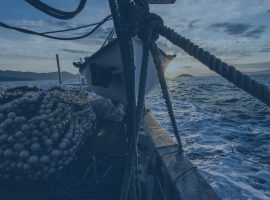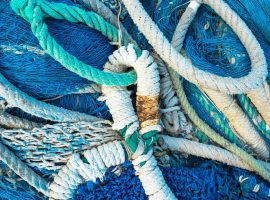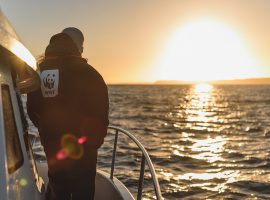Building on successful studies of using selective gears of the last few years, in 2022 (as endorsed by the 44th GFCM commission) a pilot project to study the effectiveness of selective measures in deep-water rose shrimp and European Hake fisheries will be implemented in the Straits of Sicily.
The project will continue the practice of building evidence-based approaches for eliminating discards and by-catch, of partnering with fishers to develop sustainable fishing practices in the Mediterranean, and will provide a model that can be replicated in other fisheries across the region.
Key to building sustainable fisheries
Fisheries are essential to the economies, societies and wellbeing of the countries around the Mediterranean, providing over 180k jobs and worth 4.4€ billion annually. But 75% of stocks in the Mediterranean and Black Sea are overfished, with many in danger of collapse. Protecting this vital resource, and the livelihoods that depend on it, requires an urgent shift to more sustainable fisheries.
Eliminating discarding and by-catch is key to achieving this, and the problem remains prevalent throughout the Mediterranean, with the production of large quantities of unwanted by-catch a pervasive feature of bottom trawl fisheries. Practical, affordable solutions to address the problem are urgently needed.
In Mediterranean trawl fisheries, the amount of unwanted by-catch that is discarded at sea is estimated to range between 20% and 65% of the total catch.
Multiple studies have shown the improved selectivity offers a solution to discarding and by-catch that is both environmentally beneficial and economically viable, but further work and investment is needed.
Continuing to build on this research, and building effective partnerships with fishers that demonstrate the value and economic benefits of greater selectivity is critical. The stronger the body of evidence for adopting and implementing new gears, and the more experience fishers have of their benefits and their practical implementation, the greater the chances of success.
Since 2019 the GFCM has highlighted the need to identify concrete and directly implementable selectivity measures to mitigate the adverse effect of fisheries on juveniles.
Modifying fishing gear to ensure better selectivity is a well-tested and well-known option to reduce unwanted by-catch, with many studies showing the benefits of these methods to fisheries and fish stocks.
GFCM recommendation 42/2018/5 prioritised the development of measures to mitigate the adverse impacts of trawl fishing on juveniles in deep-water rose shrimp (Parapenaeus longirostris) and European hake (Merluccius merluccius) fisheries in the Strait of Sicily.
In light of this, WGFiT 2021 and the GFCM SAC approved the implementation of a pilot project aimed at assessing the effectiveness of selective measures, suggesting to include fitting a 90º turned mesh (T90) panel on the trawl net extension and inserting a selective grid in the standard net extension in these fisheries.
Actions needed will be:
- Fisher and stakeholder involvement
A key element of the pilot project will be the full involvement of fishers in the design and execution of activities - their participation is key to success. To ensure adequate buy-in and participation of the commercial fishers/fleets, the work at sea will be preceded by communications campaigns aimed at fishers and relevant stakeholders.
To properly assess the effectiveness of reducing unwanted catches and discards, the proposed measures will be experimentally adopted by a large number of commercial trawlers, of all trawling fleets operating in the Strait of Sicily, and tested during regular working conditions.
- Work at sea
The adoption of the selective measures will take place for a well-defined period of time during the fishing season, during regular fishing operations on commercial fishing grounds.
Evaluations of effectiveness will be performed simultaneously and on a large geographical scale (at sub-regional level). The sampling strategy will be standardised, comprising parallel hauls using commercial vessels fishing with a regular commercial trawl nets (control) and with modified nets containing the proposed experimental selective measures, over consecutive/same days in the same area.
The use of 90º turned mesh (T90) has been shown to increase the size at selection.
The insertion of selective sorting grids in the body of the trawl has also been repeatedly trialed with good results in terms of species and size selection.
These devices are of low cost, ease of operation, with low environmental impact.
Detailed information (for both the original and the experimental fishing gears) will be collected on:
- bycatch (both discards and incidental catches of vulnerable species);
- the species composition as well as the length frequency distribution and condition of the catch;
- economic information on the sales of the catch
- Extending the coverage
A key aim of the project is to ensure the widest possible geographical coverage and impact by being part of concerted action with other similar initiatives elsewhere in the Mediterranean, and through the use of common methodologies.
- Data analysis
The final stage of the project will be a comprehensive analysis of all the data collected, taking account of all variables and external factors, with conclusions on the overall effectiveness of the adopted selective measures.
Taking practical steps towards sustainable fisheries
Moving towards fully sustainable fisheries in the Mediterranean requires action at all levels, with everybody working together. From legislation and investment, to research and partnerships with fishers and industry stakeholders.
Continuing to develop projects that build on the evidence-based case for greater selectivity, that involve fishers in the development and evaluation of more selective gears, and that can be replicated in fisheries across the region, will continue to be a fundamental part of efforts to build a sustainable future for Mediterranean fisheries: one that both protects the marine environment and the livelihoods of fishers for generations to come.

